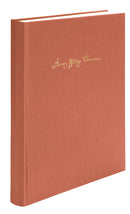| 作曲者 | Georg Philipp Telemann (1681-1767)・ゲオルク・フィリップ・テレマン |
| タイトル | Die Last-tragende Liebe oder Emma und Eginhard TWV 21:25 |
| サブタイトル | Singspiel in 3 acts |
| 出版社 | Bärenreiter・ベーレンライター |
| シリーズ名 | Georg Philipp Telemann. Musikalische Werke; Telemann Musical Works 37 |
| 楽器編成 | Solos, Mixed Choir, Orchestra |
| 品番 | 9790006497942 |
| 校訂者 | Wolfgang Hirschmann |
| 形状 | LXVIII, 487 ページ・33.1 x 26.1 cm・2358 g・布装丁 |
| 演奏時間 | 100分 |
| 出版番号 | BA 5855 |
| ISMN | 979-00064979-42 |
In Die Last-tragende Liebe oder Emma und Eginhard (1728) several strands and levels of plot are interwoven in complex fashion. The serious is intertwined with the comic, affairs of state with the individually human. People of high rank and lower rank communicate with each other, one group perfectly understanding the language of the other and even capable of speaking it if necessary.
Charlemagne, emerging victorious from a war, learns that his daughter Emma and his secretary Eginhard have fallen in love with each other. As Emperor, Charlemagne, pressed by his wife Fastrath, has to oppose this relationship, but as a loving father he comes into conflict, as Emma has to decide between her love or a marriage befitting her social standing. In addition to this, Emma is wooed by Prince Heswin who in turn is loved by Emma's friend Hildegard. The servant Barbara, who is pursued by the factotum Urban, is in love with Eginhard, but it is Steffen, the commentator on everything, who succeeds in winning her.
Telemann's highly complex music, expressive and emotional, artistic and stylish, is suited to each and every situation and level – "an incomprable masterpiece by Herr Telemann who is never praised enough", as the printed libretto stated.



